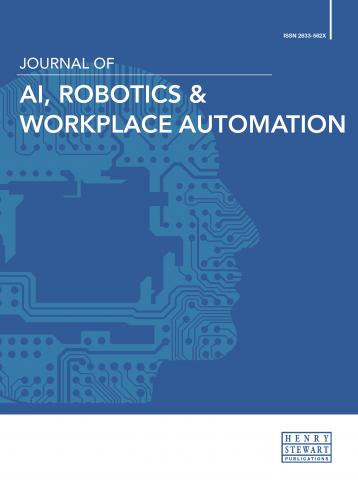"Congrats on Journal of Brand Strategy. From the outset I liked the focus on real problems and real solutions. I especially like the case study section, there are so few outlets for this article type and it can be so useful."
Robotic process automation and the power of automation in the workplace
Click the button below to download the full text of the article.
Abstract: Robotic process automation (RPA) is a powerful tool for performing manual, time-consuming, rules-based office activities more effectively by reducing cycle time and at lower costs than other automation solutions. RPA can have a major effect on a company’s operations and strategic positioning and serves as a base for machine learning (ML), artificial intelligence (AI) and the creation of a more autonomous sector. This paper discusses how two of RPA’s most significant advantages — ease of deployment and improved speed and agility — are often overlooked. The paper advises business leaders to concentrate on automating as much as possible, focusing on front-end processes, optimising efficiency and striving for auditability.
Keywords: Robotic process automation (RPA); cycle time; operations; strategic positioning; machine learning (ML); artificial intelligence (AI); automating; front-end processes
Raj Samra is a New York-based senior manager within PwC’s banking and capital markets group with over 12 years’ global experience assisting Fortune 100 clients with enterprise strategy and transformation initiatives.



